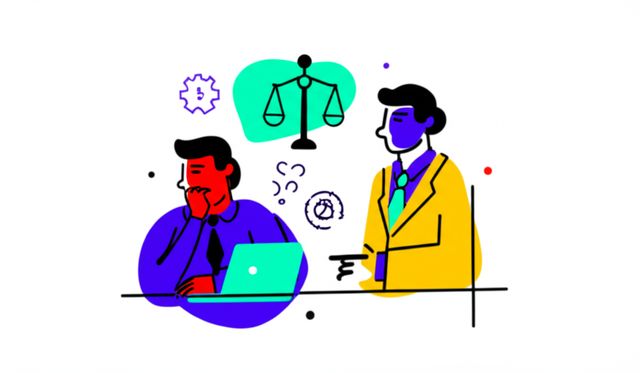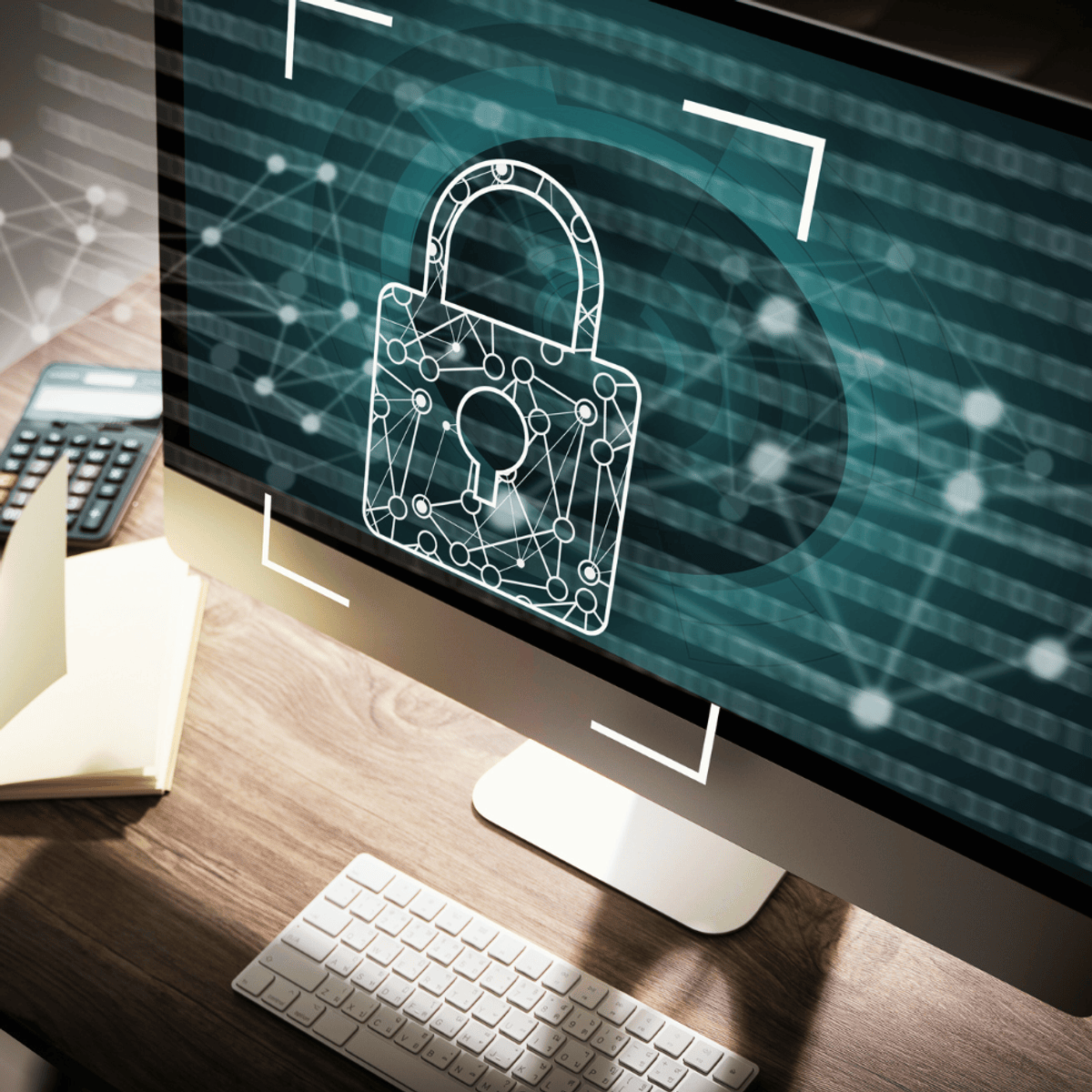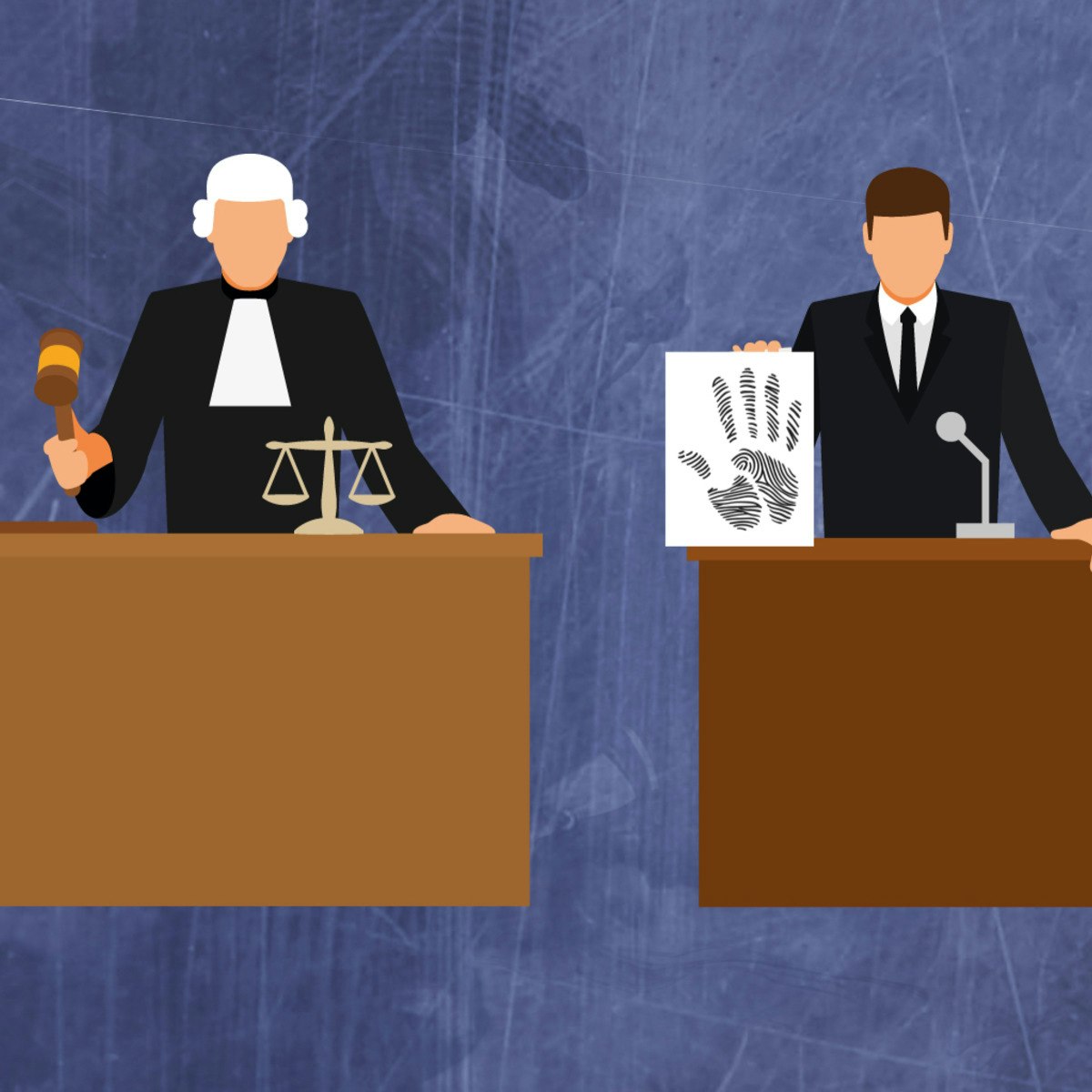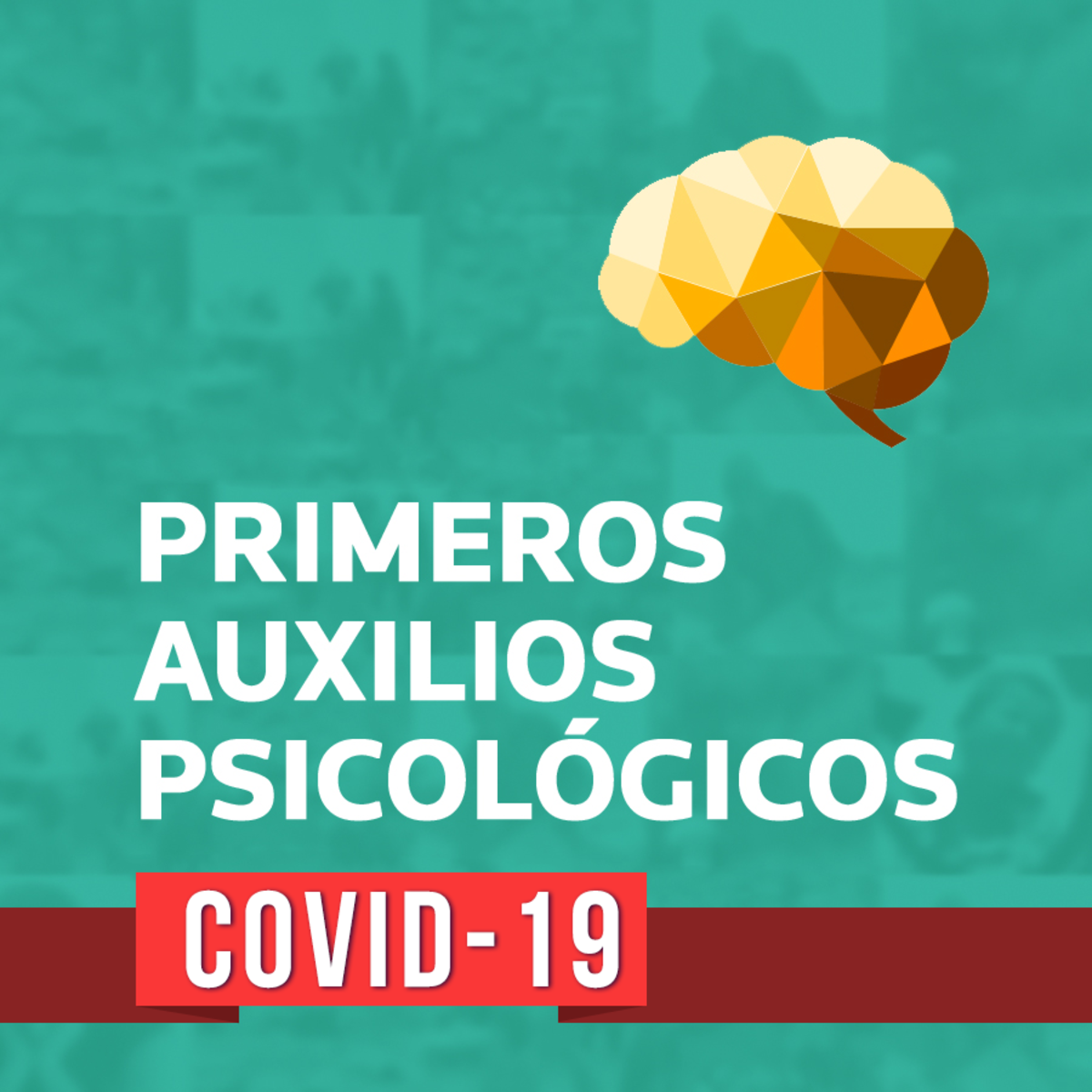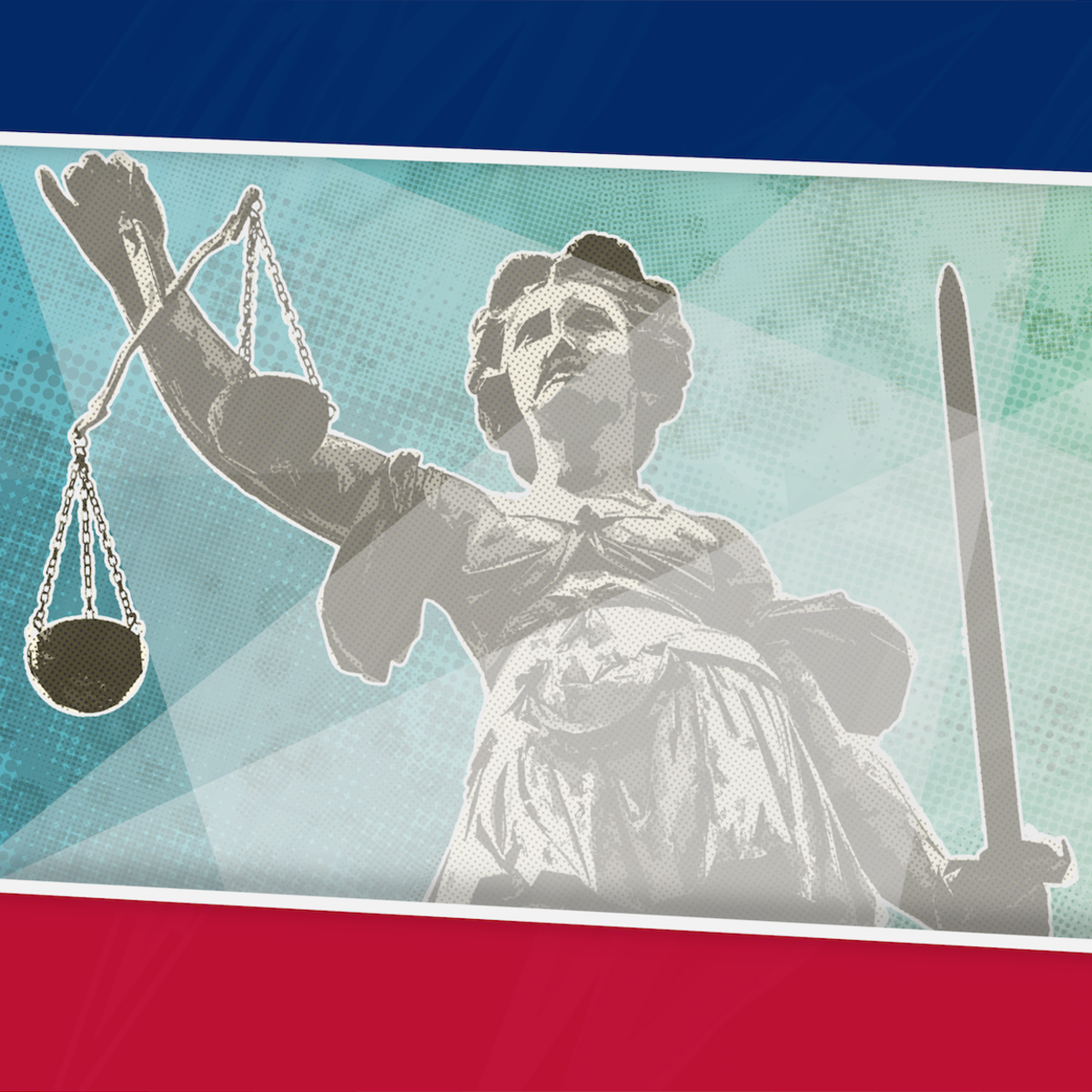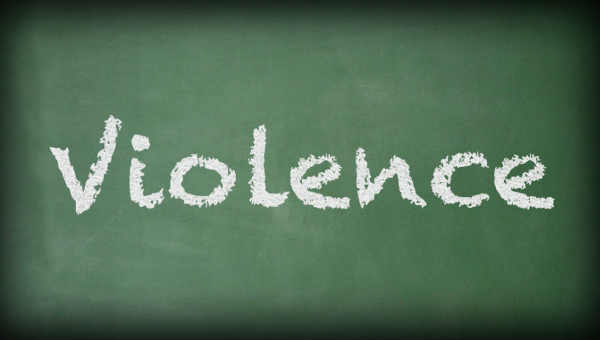Forensic Psychologist
Forensic Psychologist: A Comprehensive Career Guide
Forensic psychology operates at the fascinating intersection of the human mind and the legal system. It involves applying psychological principles, research, and clinical skills to legal matters, influencing everything from criminal investigations and court proceedings to correctional facility programs. Practitioners delve into the complexities of human behavior within a legal context, working to understand motivations, assess mental states, and provide insights that inform legal decisions.
Working in this field can be incredibly engaging. Imagine using psychological expertise to help determine if someone is competent to stand trial, providing critical testimony that clarifies complex behavioral issues for a judge or jury, or designing programs aimed at reducing recidivism. It's a career that demands sharp analytical skills, strong ethical grounding, and a deep interest in both psychology and the mechanisms of justice.
Introduction to Forensic Psychology
Understanding this specialized field begins with recognizing its unique position bridging two distinct disciplines. It's more than just psychology applied in a legal setting; it's a specific application focused on questions posed by the law.
Definition and Scope
Forensic psychology involves the application of psychological knowledge and methods to both civil and criminal legal questions. Professionals in this field perform a wide array of tasks, including conducting psychological assessments relevant to legal issues, providing expert opinions to courts, and contributing to the development of legal policies and practices concerning mental health.
The scope is broad, encompassing criminal law (e.g., insanity defenses, risk assessment for violence, competency evaluations) and civil law (e.g., child custody evaluations, psychological injury assessments). Forensic psychologists work in diverse settings, including courts, prisons, psychiatric hospitals, private practices, and government agencies.
This field requires a nuanced understanding of both psychological principles and legal standards. It necessitates translating complex psychological findings into language accessible and relevant to legal professionals, judges, and juries.
Historical Context
The roots of forensic psychology trace back to the early 20th century, when psychologists began exploring the reliability of witness testimony. Early pioneers like Hugo Münsterberg published works questioning the accuracy of courtroom recollections, sparking interest in how psychological insights could inform legal processes.
Over the decades, the field grew, influenced by landmark legal cases that addressed issues like competency to stand trial and the admissibility of psychological evidence. The formal recognition of forensic psychology as a specialty area by organizations like the American Psychological Association (APA) further solidified its status.
Significant developments included the refinement of assessment tools specifically for legal contexts and the establishment of ethical guidelines addressing the unique challenges faced by practitioners operating within the adversarial legal system. The field continues to evolve alongside advancements in psychology, neuroscience, and legal standards.
Distinguishing Forensic from Clinical Psychology
While both forensic and clinical psychology involve assessment and understanding mental health, their goals and contexts differ significantly. Clinical psychologists primarily focus on diagnosing and treating mental health disorders to alleviate suffering and improve a client's well-being. The therapeutic relationship is paramount, built on trust and confidentiality.
Forensic psychology, conversely, applies psychological principles within the legal arena. The "client" is often the legal system or a third party (like an attorney or court), not necessarily the individual being evaluated. The primary goal is to provide objective, data-driven information to assist legal decision-making, rather than therapy.
Confidentiality rules also differ; information gathered in a forensic context is often not privileged and may be disclosed in court reports or testimony. This distinction requires forensic psychologists to maintain a high degree of objectivity and awareness of their specific role and ethical obligations within the legal framework.
Roles and Responsibilities
Forensic psychologists perform a variety of critical functions within the legal system. Their expertise helps clarify psychological aspects of cases and inform decisions made by judges, juries, and other legal professionals.
Psychological Assessments in Legal Contexts
A core function is conducting specialized psychological evaluations tailored to specific legal questions. This might involve assessing a defendant's competency to stand trial, evaluating their mental state at the time of an alleged offense (insanity defense), or determining the risk of future violence.
These assessments utilize standardized psychological tests, clinical interviews, reviews of records (legal, medical, educational), and collateral interviews. The psychologist integrates these findings into a comprehensive report addressing the specific legal standard in question.
Accuracy, objectivity, and adherence to legal criteria are crucial. Forensic assessments differ from clinical evaluations in their purpose, the nature of the relationship with the evaluee, and the importance placed on third-party information and potential malingering.
To learn more about assessment techniques, consider exploring relevant resources.
Expert Witness Testimony
Forensic psychologists often serve as expert witnesses, presenting their assessment findings and professional opinions in court. Their role is to educate the judge and jury on complex psychological matters relevant to the case, helping them understand behavior, mental states, or assessment results.
Effective expert testimony requires translating technical psychological concepts into clear, understandable language. It also involves withstanding cross-examination, where attorneys may challenge the psychologist's methods, findings, or conclusions.
Maintaining objectivity and adhering strictly to the data are paramount. The psychologist's duty is to the court, providing unbiased information based on scientific principles and established practices within the field, regardless of which side retained them.
Rehabilitation and Treatment Programs
Some forensic psychologists work in correctional settings or forensic hospitals, designing and implementing treatment programs for offenders. These programs might target issues like substance abuse, anger management, sex offending behavior, or mental illness contributing to criminal conduct.
The goal of these interventions is often twofold: to improve the individual's functioning and well-being, and to reduce the risk of reoffending (recidivism). Treatment planning is informed by risk assessments and tailored to the specific needs and criminogenic factors of the individual or group.
This role requires strong clinical skills combined with an understanding of criminogenic risk factors and evidence-based interventions effective within forensic populations. Evaluating program effectiveness through research is also a key component.
Consultation with Legal Professionals
Forensic psychologists frequently consult with attorneys, judges, law enforcement agencies, and policymakers. They might assist attorneys with case strategy, jury selection, understanding psychological reports, or preparing to cross-examine opposing experts.
Consultation can also involve educating legal professionals about psychological issues, helping law enforcement agencies develop better interviewing techniques, or advising policymakers on legislation related to mental health and the law.
This requires excellent communication skills and the ability to apply psychological knowledge to practical legal problems. It bridges the gap between the two disciplines, helping the legal system make more informed decisions.
Formal Education Pathways
Becoming a licensed forensic psychologist involves a rigorous and lengthy educational journey. Specific requirements vary by state or jurisdiction, but the general path involves advanced graduate training.
Foundational Undergraduate Studies
A bachelor's degree is the first step, typically in psychology. Coursework should include statistics, research methods, abnormal psychology, developmental psychology, and social psychology. Strong performance in these areas is crucial for graduate school admission.
Complementary coursework or a minor in areas like criminology, sociology, or legal studies can also be beneficial, providing context for the legal aspects of the field. Gaining research experience as an undergraduate, perhaps volunteering in a professor's lab, significantly strengthens graduate applications.
Maintaining a high GPA and cultivating relationships with professors for letters of recommendation are essential components of preparing for the competitive graduate school application process.
Graduate Degree Requirements
A doctoral degree (Ph.D. or Psy.D.) in psychology from an accredited program is generally required for licensure as a psychologist, including those specializing in forensics. While some Master's (M.A./M.S.) programs exist in forensic psychology, they typically lead to roles like research assistant or positions under the supervision of a licensed psychologist, rather than independent practice.
Ph.D. programs traditionally emphasize research alongside clinical training (scientist-practitioner model), while Psy.D. programs often focus more heavily on clinical practice (practitioner-scholar model). Both prepare students for licensure, but career goals might influence which path is preferred.
Graduate programs specifically in forensic psychology exist, but many students earn a doctorate in clinical or counseling psychology and then specialize through forensic-focused coursework, internships, and postdoctoral training. Look for programs accredited by organizations like the American Psychological Association (APA).
Licensure and Certification
After earning a doctorate, aspiring forensic psychologists must become licensed to practice independently. Licensure requirements are set by individual states or provinces but typically involve passing the Examination for Professional Practice in Psychology (EPPP) and completing a specific number of supervised postdoctoral hours (often 1-2 years).
These supervised hours provide practical experience under the guidance of a licensed psychologist, often including forensic-specific training. State laws may also require additional jurisprudence exams covering local laws and regulations relevant to psychological practice.
Beyond state licensure, board certification in forensic psychology is available through the American Board of Professional Psychology (ABPP), specifically the American Board of Forensic Psychology (ABFP). While not mandatory for practice, board certification signifies a high level of competence and expertise in the specialty.
Postdoctoral Training
Postdoctoral fellowships offer intensive, specialized training in forensic psychology after the doctoral degree. These fellowships, typically lasting one to two years, provide supervised experience in specific areas like forensic assessment, treatment in correctional settings, or child forensic psychology.
Completing a postdoctoral fellowship is often a required step towards licensure, fulfilling the supervised practice hours mandated by state boards. It's also a critical period for developing advanced skills and expertise under mentorship.
These positions are competitive and offer invaluable preparation for independent practice. They allow new professionals to refine their assessment techniques, gain court experience, and solidify their understanding of the complex interplay between psychology and the law.
Online and Independent Learning Strategies
While formal education and licensure are non-negotiable for independent practice, online resources and self-directed study can significantly supplement learning, help explore interest, and keep professionals updated. OpenCourser offers a vast catalog to aid this journey.
Building Foundational Knowledge Online
Online courses provide accessible ways to build foundational knowledge in core areas relevant to forensic psychology. Learners can explore topics like abnormal psychology, criminal law basics, psychopathology, and ethical principles without committing to a full degree program initially.
These courses can be particularly helpful for those considering a career pivot or for undergraduates wanting to deepen their understanding beyond standard coursework. They offer flexibility and exposure to specialized topics that might not be available locally.
Exploring these online courses can solidify understanding of key concepts.
Remember, online courses supplement, but do not replace, the accredited graduate education required for licensure. However, they are excellent tools for exploration and foundational learning. Use OpenCourser's Psychology and Legal Studies categories to find relevant options.
Developing Practical Skills Independently
While hands-on skills like assessment administration and expert testimony require supervised practice, independent study can lay groundwork. Analyzing published case studies, reading trial transcripts, or reviewing landmark court decisions involving psychological evidence can build analytical skills.
Some online platforms or workshops might offer simulated exercises, such as practicing report writing based on hypothetical case vignettes or preparing outlines for simulated expert testimony. These activities can enhance understanding of the practical application of forensic principles.
However, it's crucial to understand the limitations. Independent study cannot replicate the feedback and guidance received during supervised internships and postdoctoral training, which are essential for developing true competence and meeting licensure requirements.
These courses offer insights into specific areas like criminal profiling and the psychology of justice.
Portfolio and Experience Building
Documenting your learning journey is important. Certificates from reputable online courses, while not equivalent to degrees, can demonstrate initiative and specific knowledge areas on a resume or graduate school application, especially when transitioning careers.
Consider undertaking small research projects, writing literature reviews on forensic topics, or analyzing publicly available data related to crime or mental health. These self-directed projects can supplement formal education and showcase analytical abilities.
Volunteering in related settings (e.g., victim advocacy centers, potentially some research labs) can also provide valuable exposure, though direct forensic work usually requires advanced training. Always prioritize ethical considerations and appropriate supervision levels for any applied work.
OpenCourser's "Save to List" feature can help you organize courses and resources as you build your learning path.
Ethical Considerations in Self-Study
Ethics are paramount in forensic psychology. While online courses might cover ethical principles, true ethical competence develops through formal training, supervision, and grappling with real-world dilemmas under guidance.
Be mindful of the limitations of self-study regarding ethics. Understanding ethical codes intellectually is different from applying them under pressure in complex legal situations. Never misrepresent online course completion as formal qualification or licensure.
Always prioritize learning from accredited programs and licensed supervisors when pursuing formal qualifications. Use independent study as a tool for exploration, foundational knowledge, and continuous professional development within the bounds of established ethical practice.
Career Progression in Forensic Psychology
A career in forensic psychology offers diverse pathways and opportunities for growth, moving from foundational roles to positions of greater autonomy, specialization, and leadership.
Starting Your Career
Entry-level positions often involve working under the supervision of experienced, licensed forensic psychologists. Common settings include correctional facilities (conducting intake assessments or group therapy), state forensic hospitals, community mental health centers with forensic units, or research positions assisting with data collection and analysis.
These roles provide essential hands-on experience, allowing new professionals to apply their graduate training in real-world settings. They are crucial for accumulating the supervised hours required for licensure and for building foundational competence in assessment and intervention with forensic populations.
Networking and seeking mentorship during internships and postdoctoral fellowships are vital for securing these initial positions. Patience and persistence are key, as landing the ideal first job requires demonstrating solid skills and a commitment to the field.
Mid-Career Advancement
With licensure and experience, forensic psychologists gain more autonomy. Many move into roles involving independent court-ordered evaluations (e.g., competency, sanity, child custody), requiring strong assessment skills and the ability to produce comprehensive, defensible reports.
Some establish private practices, offering assessment and consultation services to attorneys, courts, or agencies. Others may take on supervisory roles, mentoring junior colleagues or overseeing specific programs within larger institutions.
Mid-career professionals might also specialize further, developing expertise in areas like forensic neuropsychology, police psychology, or juvenile justice. Continuous learning through workshops, conferences, and advanced certifications (like ABFP) supports this growth.
Senior and Leadership Roles
Experienced forensic psychologists can advance to significant leadership positions. This might involve directing forensic units in hospitals or correctional systems, shaping policy within government agencies, or achieving senior faculty status in academic settings, training the next generation.
Senior practitioners may become sought-after consultants on complex cases or contribute to developing national standards and guidelines for forensic practice. Leadership often involves administrative duties, program development, and representing the field in broader legal and mental health communities.
These roles require not only deep expertise in forensic psychology but also strong leadership, management, and communication skills. They offer the potential to have a wide-ranging impact on the field and the justice system.
Alternative and Related Career Paths
The skills developed in forensic psychology are transferable. Some professionals pivot into related areas like jury consulting, helping attorneys understand juror biases and select favorable juries. Others focus on victim advocacy, applying psychological principles to support victims of crime.
Forensic social work shares some overlap, focusing on the social and systemic factors influencing individuals involved in the legal system. Roles in policy analysis, threat assessment for organizations, or consulting for law enforcement agencies also draw on forensic psychology expertise.
These paths may appeal to those seeking different work environments or ways to apply their understanding of human behavior within legal or quasi-legal contexts. Exploring these options requires understanding their unique demands and potential additional training needs.
Ethical Challenges in Forensic Psychology
Forensic psychology operates within a complex ethical landscape, balancing the principles of psychology with the demands and constraints of the legal system. Navigating these challenges requires constant vigilance and adherence to specialized ethical guidelines.
Confidentiality and Disclosure
Unlike traditional therapy, forensic evaluations typically lack full confidentiality. Evaluees must be informed upfront that the information gathered may be included in reports shared with attorneys, judges, or other legal parties. This "limits of confidentiality" notification is a critical ethical requirement.
The psychologist's primary duty is often to the court or retaining party, not the individual being assessed. Balancing the need for thorough assessment with the individual's rights and the legal mandate for disclosure requires careful judgment.
Situations involving mandated reporting of child abuse or threats of violence add further layers of complexity, requiring knowledge of both ethical codes and specific state laws governing disclosure.
Maintaining Objectivity and Avoiding Bias
Forensic psychologists must strive for impartiality, even when retained by one side in an adversarial legal process. Their opinions must be based on data and scientific principles, not allegiance to the retaining party. This requires resisting pressure and avoiding confirmation bias.
Working on high-stakes criminal cases or emotionally charged civil matters (like child custody disputes) can make maintaining objectivity challenging. Awareness of personal biases and employing rigorous, standardized assessment procedures are essential safeguards.
Transparency about methodology, data sources, and the limitations of findings is crucial for upholding ethical standards and ensuring the credibility of the psychologist's work within the legal system.
Cultural Competence
The legal system interacts with individuals from diverse cultural, ethnic, socioeconomic, and linguistic backgrounds. Forensic psychologists must possess cultural competence to conduct fair and accurate assessments and provide relevant testimony.
This involves understanding how cultural factors might influence behavior, communication styles, interpretation of assessment measures, and perceptions of the legal system. Using culturally appropriate assessment tools and potentially interpreters is vital.
Lack of cultural competence can lead to misinterpretations, biased conclusions, and ultimately, unjust outcomes. Ongoing education and self-reflection regarding cultural humility are necessary ethical commitments for practitioners.
Navigating Dual Relationships
Forensic psychologists must be cautious about dual relationships – situations where they have multiple roles with an individual (e.g., evaluator and therapist). In forensic work, the role is typically evaluator or consultant, not therapist.
Treating someone and then later evaluating them for a legal matter concerning the same issues generally creates an unavoidable conflict of interest and compromises objectivity. Ethical guidelines strongly advise against such dual roles.
In smaller communities or specialized areas, avoiding all potential conflicts can be difficult. Clear role definition from the outset, careful consideration of potential conflicts, and consultation with colleagues are essential practices.
Work Environments and Daily Realities
The day-to-day life of a forensic psychologist can vary significantly depending on their specific role and work setting. Understanding these realities is crucial for prospective professionals.
Settings: Government vs. Private Practice
Many forensic psychologists work in government settings like prisons, forensic hospitals, courts, or police departments. These roles often involve regular hours, structured responsibilities (e.g., conducting assessments, running groups), and working as part of a larger team. Bureaucracy and institutional constraints can be part of the environment.
Others establish private practices, offering consultation or assessment services on a case-by-case basis. This provides more autonomy regarding schedule and case selection but requires business management skills (marketing, billing) and involves income variability.
Some may blend roles, perhaps working part-time in an institution while maintaining a small private practice. Each setting offers different benefits and challenges regarding stability, flexibility, caseload, and types of work.
Managing Stress and Burnout
Forensic psychology can be inherently stressful. Practitioners often deal with individuals accused or convicted of serious crimes, review disturbing case details, and work within a high-stakes adversarial system. Exposure to trauma, conflict, and institutional pressures can take a toll.
Vicarious traumatization (experiencing trauma symptoms from exposure to others' trauma) is a real risk. High caseloads, tight deadlines for reports, and the pressure of court testimony add to the stress.
Developing strong coping mechanisms, maintaining work-life balance, seeking peer support or supervision, and engaging in regular self-care are critical for preventing burnout and sustaining a long-term career in this demanding field.
This course, while focused on police, touches on relevant stress management principles.Logistical Aspects
The job often involves significant report writing, requiring clear, concise, and detailed documentation of assessments and opinions. Time management is crucial for meeting court deadlines.
Depending on the role, travel may be required for court appearances, conducting evaluations in different locations (e.g., jails, hospitals), or attending professional conferences.
Flexibility can be important, as court schedules can change, and urgent consultations might arise. Balancing clinical work, report writing, testimony preparation, and administrative tasks is a constant juggling act.
Collaboration and Teamwork
Forensic psychologists rarely work in isolation. They collaborate extensively with legal professionals (attorneys, judges), correctional staff, other mental health professionals, social workers, and law enforcement personnel.
Effective communication and the ability to work as part of a multidisciplinary team are essential. This involves clearly explaining psychological findings to non-psychologists and understanding the roles and perspectives of other professionals involved in a case.
Building respectful working relationships across disciplines is key to navigating the complex systems within which forensic psychology operates and ensuring that psychological insights are effectively integrated into legal processes.
Essential Skills for Forensic Psychologists
Success in forensic psychology demands a unique blend of clinical acumen, legal knowledge, research skills, and strong personal attributes. Mastering these competencies is essential for effective and ethical practice.
Assessment Proficiency
Proficiency in psychological assessment is fundamental. This includes selecting appropriate tests, administering and scoring them correctly, interpreting results within a legal context, and understanding psychometric principles (reliability, validity).
Knowledge of specialized forensic assessment instruments (e.g., for competency, risk assessment like the PCL-R, malingering) is crucial. Training and supervised experience are necessary to develop competence with these tools.
Strong clinical interviewing skills are also vital for gathering relevant history, observing behavior, and assessing mental status, complementing standardized testing.
These resources delve into criminal profiling and related investigative techniques.
Legal Knowledge
Forensic psychologists must possess a solid understanding of the legal system, relevant statutes, case law, and standards of evidence (e.g., Daubert, Frye standards for admissibility of expert testimony).
Mastery of legal terminology is necessary to communicate effectively with attorneys and judges and to understand the specific legal questions being addressed in evaluations.
This doesn't require a law degree, but it does necessitate ongoing learning about legal procedures, rules of evidence, and the specific legal standards applicable to their area of forensic practice (e.g., criteria for insanity defense in their jurisdiction).
This course focuses on Chinese criminal law but illustrates the type of legal knowledge needed.Communication and Testimony Skills
Excellent written and oral communication skills are indispensable. Forensic psychologists must write clear, concise, well-organized, and objective reports that directly address the legal referral question.
They must also be able to present complex information effectively in court testimony, educating the judge and jury without jargon. Confidence, clarity, and composure under cross-examination are critical.
Active listening skills are also important for understanding legal professionals' needs during consultations and for conducting thorough clinical interviews during assessments.
Clinical and Interpersonal Skills
Strong foundational clinical skills remain important, including rapport-building (within professional boundaries), empathy, and crisis intervention techniques, particularly when working with distressed or volatile individuals.
Interpersonal skills are needed for effective collaboration with diverse professionals. Objectivity, ethical integrity, critical thinking, and resilience are crucial personal attributes for navigating the complexities and pressures of the field.
Understanding personality contributes to assessment and interpersonal skills.Current Trends Impacting Forensic Psychology
The field of forensic psychology is dynamic, constantly influenced by advancements in science, technology, legal reforms, and societal shifts. Staying abreast of these trends is crucial for practitioners.
Technological Advancements
Neuroimaging techniques (like fMRI) are being explored for their potential, albeit controversial, applications in areas like competency evaluations or assessing deception, raising complex legal and ethical questions.
Telepsychology is increasingly used for remote assessments and consultations, particularly in underserved areas, though challenges regarding rapport, test administration validity, and security persist.
Artificial intelligence (AI) and machine learning are being developed for risk prediction tools. While potentially offering efficiency, concerns about algorithmic bias, transparency, and the role of clinical judgment remain significant points of discussion and research.
This course provides context on the broader digital landscape impacting investigations.Legal and Policy Changes
Ongoing movements for sentencing reform, changes in juvenile justice approaches (e.g., raising the age of adult jurisdiction), and evolving legal standards for the admissibility of expert testimony directly impact forensic practice.
Legislation related to mental health treatment access, civil commitment standards, and privacy regulations (like HIPAA in the US) also shapes how forensic psychologists work and handle information.
Practitioners must stay informed about relevant legislative changes and appellate court decisions in their jurisdictions to ensure their work meets current legal standards.
Focus on Trauma and Victimology
There is growing recognition of the high prevalence of trauma among individuals involved in the criminal justice system, both offenders and victims. This has led to increased emphasis on trauma-informed assessment and care within forensic settings.
Understanding the psychological impact of trauma is increasingly important for evaluations, treatment planning, and providing expert testimony. The field of victimology, studying the psychological effects of victimization, is also gaining prominence within forensic psychology.
Integrating Research and Practice
The push for evidence-based practice remains strong. Forensic psychologists are increasingly expected to rely on assessment tools and intervention techniques supported by rigorous scientific research.
This involves staying current with relevant research literature, critically evaluating the quality of evidence, and integrating empirical findings with clinical expertise and case-specific factors.
The gap between research findings and routine clinical practice is an ongoing challenge, highlighting the need for better dissemination of research and training in applying evidence-based approaches in complex forensic contexts. You can browse research methods courses on OpenCourser.
Frequently Asked Questions
Navigating the path to becoming a forensic psychologist often raises common questions. Here are answers to some frequently asked queries.
Is a law degree necessary for forensic psychology?
No, a law degree (J.D.) is not required to become a forensic psychologist. The required degree is a doctorate (Ph.D. or Psy.D.) in psychology, followed by state licensure. While some individuals pursue dual degrees (Ph.D./J.D. or Psy.D./J.D.), it's uncommon and not necessary for practice. However, a strong understanding of relevant legal principles and procedures is essential and gained through specialized forensic training.
How do burnout rates compare to clinical psychology?
Both fields can have significant stressors. Forensic psychology often involves exposure to disturbing case material, high-stakes evaluations, and an adversarial legal environment, which can contribute to burnout. Clinical psychology may involve high caseloads and intense therapeutic work. Direct comparison data is limited and complex, but burnout risk exists in both fields, emphasizing the need for strong self-care and professional support systems.
Can international students enter this field in the U.S.?
Yes, international students can pursue graduate studies in forensic psychology in the U.S. However, navigating licensure requirements post-graduation can be complex, often involving specific visa requirements for employment and potentially additional steps to demonstrate educational equivalency. Prospective international students should research specific state licensure board requirements and immigration regulations thoroughly early in their planning.
What emerging specialties show growth potential?
Areas like forensic neuropsychology (assessing brain injury/function in legal contexts), cyberpsychology related to digital crime, threat assessment, and consultation related to national security or counterterrorism are growing. Additionally, specialized work with specific populations, such as juveniles or individuals with developmental disabilities within the legal system, continues to be important.
How do salary ranges vary by sector?
Salaries vary significantly based on experience, geographic location, sector, and specific role. According to the U.S. Bureau of Labor Statistics, the overall median pay for psychologists was $92,740 in May 2023, but this includes all specialties. Forensic psychologists in government positions (e.g., federal prisons, state hospitals) often have defined salary scales, while those in established private practices, particularly high-demand consultants, may earn significantly more. Academic positions typically vary based on rank and institution.
What personal traits predict career longevity?
Resilience, strong ethical grounding, objectivity, critical thinking skills, intellectual curiosity, excellent boundaries, and effective stress management techniques are crucial. The ability to remain impartial under pressure, communicate clearly, manage complex information, and maintain work-life balance contributes significantly to navigating the demands of the field long-term.
Useful Resources
For those seeking more information, several organizations and resources provide valuable insights into forensic psychology:
- American Psychology-Law Society (AP-LS) - Division 41 of the APA: Offers resources, journals, conferences, and information about education and training. You can often find information via the main American Psychological Association website.
- American Board of Forensic Psychology (ABFP): Provides information on board certification standards and processes for forensic psychologists.
- U.S. Bureau of Labor Statistics (BLS): Offers general occupational outlook and salary information for psychologists (BLS Psychologists Page).
- OpenCourser Learner's Guide: Provides tips on utilizing online courses effectively for career exploration and development (Learner's Guide).
Embarking on a career as a forensic psychologist is a demanding yet potentially deeply rewarding path. It requires significant dedication to education, training, and ethical practice. By understanding the roles, challenges, and opportunities involved, you can make an informed decision about whether this fascinating intersection of psychology and law aligns with your aspirations and capabilities. Remember to utilize resources like OpenCourser's browsing features to explore relevant foundational topics as you consider your journey.

